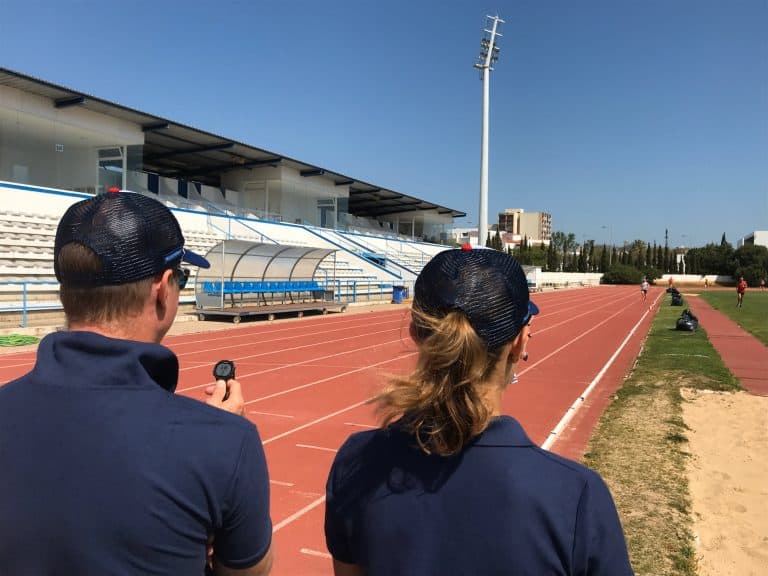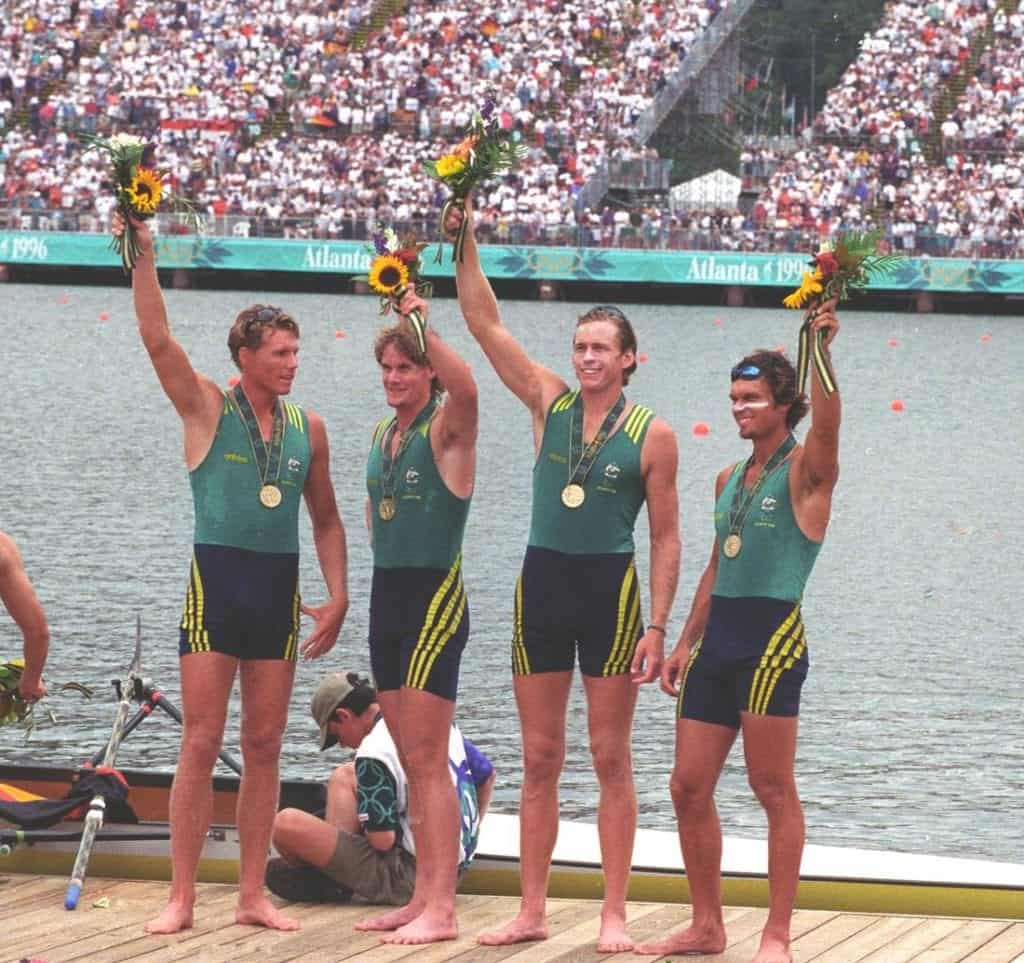Sport Psychologists and Mental Performance Consultants (CMPCs) often find themselves on the front lines of athlete and coach development, helping individuals and teams navigate the mental challenges of performance. If you’re considering becoming accredited in Athlete Assessments’ DISC Profiles, you’re not alone. Many of your peers have already taken this step, and their experiences reveal the profound impact DISC can have on athletes, coaches, and teams.
Here’s what leading professionals have to say about the benefits of DISC Accreditation, how they use it in their work, and the exceptional support they’ve received from Athlete Assessments.
1. DISC Accreditation Provides Faster Connections, Deeper Insights
Accelerate Rapport Building with DISC Accreditation: A Game-Changer in Understanding Athletes
Building rapport quickly is essential, especially in high-pressure, fast-paced environments. For Samantha Gilmore, Certified Mental Performance Consultant (CMPC), at the Cameron Institute at the University of California, Berkeley and formerly Mental Performance Coordinator with the New York Mets, shared that DISC has been transformative in achieving this goal,
“DISC plays a critical part in understanding the players and connecting with them quicker. Relationship building, connection, and understanding how someone learns is going to lend us to develop them faster and get them ready for competition.”
Dr. Megan Buning, CMPC, a Teaching Specialist in the Interdisciplinary Center for Athletic Coaching (FSU COACH) added,
“In addition to helping coaches understand athletes, DISC helps me understand the individual I’m working with. Once I understand a coach’s perspective, their outcome goals, then we start having conversations about strategies to support them. If their challenge is connecting with the team, I give them some ideas, or we can talk about individuals and the challenges their style presents. So it is packaging to the person who is across from you and understanding their desires, their goals and the best way that you can support them.”
Athletes are more than just their technical ability, and with an 18 year career pitching in the major league Bob Tewksbury, sport psychologist, CMPC, and author, understands. So he uses every dimension of an athlete’s behavior to develop their performance.
“First, DISC Profiles give me a bandwidth of knowledge about the athlete right away. It would take many hours of conversation to find out this information otherwise. Secondly, when the athlete and I discuss their Profile, it helps build the personal relationship needed to gain the athlete’s trust. Thirdly, the information helps the athlete know themselves more and better (and also helps others know them as well). So, I absolutely love the DISC Profiles and have made them part of my assessment with all athletes I work with.”
Dr. Nicole Detling, sport psychologist and Mental Performance Coach at Headstrong Consulting shared a perspective shaped by working with teams competing at the highest levels including the US Olympic teams.
“Getting certified in Athlete Assessments’ DISC has helped me understand so much more about the behavioral tendencies of the coaches and athletes I work with. It has helped people who struggle to explain themselves, give them (and me) a better understanding; which then drives our sessions.”
Whether you’re working with college teams, or professional athletes and coaches, DISC equips you with the tools to foster quicker, more meaningful connections that lead to faster development.
2. Building Self-Awareness in Athletes and Coaches
Unlock Potential Through DISC Accreditation: Developing Self-Awareness for Growth
Understanding oneself is key to growth, and Athlete Assessments’ DISC Profiles provide a structured framework for developing this awareness with those you work with.
David Robertson, High-Performance Pursuit Advisor at Own the Podium – the organization founded to support Canadian athletes on their Olympic journey, shared this.
“The written report in the DISC profile really does tell a story, it’s a great narration about the person who’s done the assessment. It helps to paint a picture. When you hear a story, you start to connect with that on an emotional level. It helps people better understand themselves and the behaviors they prefer. It also helps them think about the people around them, whether they are similar or different to them and how they are currently communicating with these people, which may or may not be effective.”
Brian Alexander, Director of Performance Mind at UC San Diego, uses DISC to unlock potential in both student-athletes and coaches,
“We use DISC profiles as a starting point in the preseason to develop and consolidate an athlete’s self-awareness. And then we roll it out through different activities and different reinforcement points through the season during our mental performance training program…”
He continued as to how he works with Coaches within UCSD’s athletics,
“I see the coach as a performer, we use DISC to develop their own self-awareness. I need to get a good understanding of who they are and the culture of their sport, the dynamics in their staff and some of the pressures they may be facing. DISC gives me an insight into how they might handle that and how it might influence their coaching style. I also consider whether they have a coaching philosophy that is clear and concise? And question how well they communicate that coaching philosophy as a model to the athletes and the staff.”
Dr. Becky Ahlgren Bedics, Vice President of Mental Health & Performance at the Women’s Tennis Association (WTA), has been accredited in DISC for many years, and carried the use of it through her various consulting roles. Sharing how they currently use it at the WTA, she offered this insight.
“It is really exciting to use DISC as a way to help somebody understand what their potential could be and help them find strategies they already have within themselves, but need reconfigured or mirrored back to them in a different way. I think it’s always important to remember, athletes are more than just bodies in motion.”
Sport Psychologist & Mental Performance Coach working in Private Practice, Jeff Troesh, develops athletes and coaches beyond preconceptions of their performance abilities, instead tapping into what they are truly capable of. He shared,
“In my experience coaches have a tendency to label their athletes, or presume based on an observed behavior, that there’s a particular intention behind it. DISC helps clarify those misunderstandings. Many of my coaching clients have bought in deeply to the concept of DISC because it benefits their coaching effectiveness. We now speak the language of DISC constantly when we’re talking about athlete-to-athlete interaction or coach-athlete communication.”
Brian Townsend, Director of Leadership Development and Community Engagement at the University of Michigan, is renowned for establishing connections with student-athletes which extend well beyond their athletic performance.
“What I love about DISC is that it builds a self-awareness of an individual’s own preferred behaviors which helps them long after their athletic career. it’s not just about an athlete’s sport. The development of self-knowledge assembles a bigger picture for the athlete, and their sport gives them a chance to rehearse what they learn about themselves through DISC.
Executive Director of the Cooper Athletics Leadership Program at Georgetown University, Al Lattell has built DISC Profiling into their Student-athlete Leadership Programming,
“In any sport they have their own set of language. In the leadership space I’m trying to create a common language which we can all understand and use interchangeably; so when we’re talking about conflict, motivation, stress, and results, we tie it all into DISC.”
Through consistent reinforcement and integration into mental performance programming, DISC helps individuals at every level of sport thrive.
3. DISC Accreditation Enhances Team Dynamics
DISC Accreditation Transforms Team Chemistry and Collaboration in Sports
Teamwork is at the heart of sport, and DISC Accreditation gives CMPCs the ability to improve team dynamics effectively.
Team chemistry and dynamics often improve as a result of common ground, when experience, background, and circumstance leading up to the formation of a team vary its cruicial to establish a commonality between people. Dr. Justin Anderson, Founder, CEO, Senior Principal Sport Psychologist at Premier Sport Psychology shared,
“DISC is a very well-established tool, but Athlete Assessments have made it all digestible for coaches and athletes (using sport language and examples) which makes it very useful when working with our diverse group of clients. Coaches get it and the entire system is a common language to build team communication and chemistry.”
Understanding another individual, whether they are a coach or a teammate is a prerequisite for learning how to best work with them. Megan Buning, highlights how DISC facilitates understanding among athletes and coaches:
“I also use DISC with some of the teams I work with here at Florida State. I work closely with the coaches helping them to understand how to read the results of DISC profiles and how they can then use them to work with the team. I also use DISC to help the athletes understand themselves and how to handle each other when they are just getting started with their season.”
David Robertson shared,
“What resonated with me the first time I looked at Athlete Assessments’ website, were the words ‘Performance Through People’. Often, we go down the path of asking, ‘What are the numbers?’, ‘How do we get our numbers up?’ Because performance is ultimately about a score, some type of quantifiable performance, but it always comes back to people and how we as humans interact. Being the best version of ourselves comes back to using our behaviors in the best way possible to deal with other people.”
From resolving conflicts to fostering collaboration, DISC provides a shared language that bridges gaps in communication and understanding.
4. DISC Accreditation Elevates Your Professional Impact
Take Your Practice to the Next Level with DISC Accreditation
DISC Profiling is more than a tool; it’s a way to enhance the quality of your work and the outcomes you deliver. As performance consultants we’re always looking for ways to help our clients be their best, but we also know our clients expect us to bring our best to them, along with their best tools for their development.
For Brian Alexander, the benefits of Athlete Assessments go beyond individual athletes,
“DISC has been a great tool to align an individual’s behaviors with their performance goals. It also allows us to understand where tension might be coming from during times of conflict and use that common language to normalize the situation.”
Samantha Gilmore echoes this, emphasizing the value of DISC in crafting presentations for coaches and administrators:
“When I’m talking to coaches or administrators, I think about how to present data that interests them. DISC gives me the insight to create the perfect package for the person sitting across from me.”
Carrie White, Vice President of Athlete Development & Engagement at the United States Olympic & Paralympic Committee, former COO of AthLife, shared,
“I talk mostly about how we’ve used the DISC to help our team and other individuals, but selfishly the DISC has helped me to be a better supervisor, a better teammate, and a better colleague. I am constantly thinking about DISC and behavior. Having that self-awareness has and continues to help me as a professional. So, it’s not just helping other people, which I really value about the instrument, it’s also helping me as a professional.”
5. Exceptional Support and DISC Accreditation Training
Comprehensive DISC Accreditation Training Backed by World-Class Support
Just like the DISC Profiles provide more than just a simple assessment; the Accreditation is more than a training program. Athlete Assessments is known for its world-class support, ensuring our consultant clients feel confident and equipped to use DISC effectively within their practice. From tailored resources to hands-on guidance, the accreditation program is tailored to your intended application and designed with your success in mind.
Founder and Senior Practitioner of Sports Conflict Institute, Joshua Gordon, shared this about his experience,
“Athlete Assessments have been amazing partners. It begins with my dedication to only working with good people – Bo, Liz, and the rest of the crew are absolutely outstanding people who happen to be great at what they do. They share a dedication to continuous improvement and are motivated by a similar passion for helping lay the foundations for success for others.”
Dr. Megan Buning concluded,
“After I took [Athlete Assessments’] DISC myself and then went through the training to be able to deliver it to others, I was really kind of floored with how valuable of an instrument it can be,”
Why DISC Accreditation Matters
If you’re ready to take your work to the next level, DISC Accreditation is a game-changer. It offers:
- Deeper Connections: Build trust and rapport quickly with athletes and coaches.
- Actionable Insights: Gain a clearer understanding of individual and team dynamics.
- Enhanced Impact: Help athletes and teams achieve their goals faster.
- Professional Growth: Elevate your practice with a proven, research-backed tool.
Join the growing community of Sport Psychologists, CMPCs, and Development Professionals who are leveraging DISC Profiling to transform the mental game in sports. Your next step starts with Athlete Assessments.
Ready to learn more? Discover Athlete Assessments’ DISC Accreditation Program here.
Recommended Articles
Dr. Ed Garrett, PsyD, BCMHC, CH-C, Director of Sport and Performance Psychology at California Baptist University, on his approach to developing people and teams in performance environments using DISC Profiling.
Dr. Megan Buning, CMPC, on Empowering Coaches, Game Officials, and Teams with Mental Performance Skills and the Practical Application of DISC Profiling.
Brian Alexander, Athlete Mental Skills Coach, on the use of DISC Profiling within his holistic approach to athlete development.







